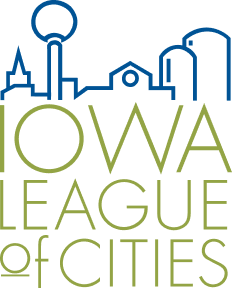Most purchases made directly by the city for supplies, merchandise or services are exempt from sales tax. This includes the water utility department and municipally-owned solid waste facilities that sell its processed waste to another municipally-owned solid waste facility for fuel. (This tax exemption does not apply when purchases are paid by a city employee with cash, personal checks or personal credit cards. Iowa sales tax applies to these purchases even if the employee will be reimbursed by the city.) City vehicle purchases are also exempt from Iowa’s 5 percent one-time registration fee.
Purchases made by municipally-owned utilities that sell gas, electricity, heat, pay television or communication service to the public are taxable. However, if a purchase is made for resale then it is tax exempt. For example, when a municipally-owned electric utility purchases additional electricity from a neighboring utility the electricity purchased for resale is tax exempt. The same is true if the purchase is used in the production of a service that is then sold to the public. Still using the electric utility example, if purchased electricity is used to generate salable electricity, then the purchase is tax exempt.
Iowa Use Tax
The Iowa use tax is usually imposed when property purchased out of state on which Iowa tax has not been paid is brought into Iowa for use here. The exemptions that apply to the sales tax also apply to the use tax. There is no local option use tax.
Construction Contracts
Cities may issue special exemption certificates to contractors and subcontractors which allows them to purchase, or withdraw from inventory, building materials for the city’s project free from sales tax. This special exemption certificate also allows a manufacturer of building materials to consume materials in the performance of a construction contract with a city without owing tax on the fabricated cost of those materials. The city must create the exemption certificates through the online system.
Fuel Tax
Except for dyed diesel, cities must pay the Iowa fuel tax on their purchases of fuel. Each city should have a fuel tax refund permit which will allow the city to apply for a refund. Refunds may be filed any time after a $60 minimum refund amount has been accumulated. Once the $60 minimum has been met, the claim for refund must be filed within three years. Claims are processed through a telephone system developed for this purpose.
Cities are allowed to purchase dyed diesel fuel for use in their off-road vehicles. If allowed under federal law, cities may also purchase dyed diesel for use in on-road vehicles. Dyed diesel is not subject to fuel tax.






